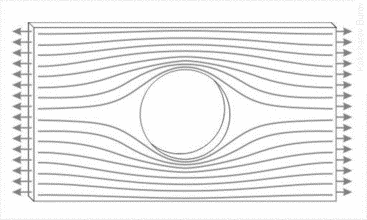Strength of Materials
In materials science, the strength of a material is the capability of it to withstand an applied stress with no failure. The field of strength of materials contracts with loads, deformations and the forces acting on a material. A load that is applied to a mechanical member will induce internal forces in the member termed as stresses. The stresses acting on the material results in deformation of the material. Deformation of the material is termed as strain, whereas the intensity of the internal forces is termed as stress. The applied stress might be tensile, compressive, or shear.

The strength of any type of material relies on three different kinds of analytical method. That is: strength, stiffness and stability, in which strength considers to the load carrying capacity, stiffness considers to the deformation or elongation, and stability refers to the capability to keep its initial configuration. Material yield strength considers to the point on the engineering stress-strain curve (as opposed to true stress-strain curve) beyond which the material experiences deformations which will not be totally reversed upon removal of the loading. The ultimate strength considers to the point on the engineering stress-strain curve corresponding to the stress which produces fracture.